Les affaires hors marché sont à la mode : Voici!
Tout le monde aime une « affaire ». Des biens de consommation aux services, en passant par les immeubles d'appartements, les acheteurs veulent avoir l'impression d'avoir fait un bon investissement, et si possible, un meilleur que ce qui est accessible au grand public (ou à leurs concurrents).
Qu'est-ce qu'une transaction hors-marché ?
En termes simples, il s'agit d'une situation où un vendeur considère une offre sans exposer la propriété au marché plus vaste des acheteurs potentiels. Le simple fait d'exclure une propriété du service MLS ne signifie pas qu'il s'agit d'une « transaction hors-marché » - une société de courtage peut avoir le mandat d'exposer la propriété directement à des acheteurs qui correspondent au profil recherché, auquel cas la propriété est considérée comme ayant été commercialisée de manière « discrète », mais toujours dans un processus concurrentiel.
Comment fonctionne une transaction hors-marché ?
Une transaction hors-marché est généralement initiée par un courtier qui identifie une correspondance entre un immeuble spécifique et un acheteur spécifique. L'acheteur est toujours une personne en qui le courtier a une confiance totale pour mener à bien la transaction. Dans certains cas, une transaction hors-marché est initiée par un vendeur qui fait confiance à son courtier pour lui apporter la meilleure offre, ou par un vendeur qui accorde une importance primordiale à la confidentialité dans le processus de vente, pour des raisons personnelles ou professionnelles.
Les propriétaires privés d'immeubles d'appartements au Canada (par opposition aux États-Unis) sont généralement discrets. Nous avons eu des vendeurs qui visitaient leurs propres immeubles "incognito", et nous connaissons personnellement un propriétaire qui, pendant plus de 20 ans, a vécu dans sa propre tour résidentielle en prétendant être le concierge ! Une grande partie des actifs d'appartements au Canada n'a pas changé de mains depuis plus de 20 ans, et la gestion est devenue, dans de nombreux cas, une affaire de famille. C'est pourquoi, dans certains cas, il est logique que le décideur final souhaite examiner une offre sans les tracas d'un processus de commercialisation complet où chaque membre de la famille peut "donner son avis". À la place, ils cherchent à prendre une décision exécutive et, si les chiffres fonctionnent en fonction de l'offre reçue, sortir élégamment.
Nous sommes en train de vendre un portefeuille à Montréal où le propriétaire nous a demandé "quel est le prix maximum que je peux obtenir", et quand nous l'avons conseillé, il a déclaré que "pour ce prix, pourquoi aller sur le marché, apportez-moi simplement l'offre". Nous connaissions le principal acheteur, avions reproduit leur approche d'évaluation et avons trouvé un accord qui avait du sens pour les deux parties. Bien sûr, la confiance et la réputation sont des facteurs clés pour obtenir les deux signatures sur cette offre : la confiance de l'acheteur que nous ne gaspillons pas leur temps et leurs ressources en soumissionnant, et que nous pouvons obtenir l'engagement du vendeur ; mais aussi la confiance du vendeur que nous avons effectivement apporté la meilleure offre. Les éléments clés de l'offre qui prouvent de manière irréfutable la sérieux de l'acheteur et l'intention de conclure (comme des délais serrés et des dépôts non remboursables) sont souvent des éléments qui permettent de conclure une transaction hors-marché.
Sais-tu qui est le meilleur acheteur ?
Ce qui fait d'un acheteur le meilleur pour une certaine propriété n'est pas nécessairement son historique d'acquisitions précédentes. Savoir simplement qui a acheté en dernier dans un marché donné pour un prix élevé n'est pas une véritable indication. Par exemple, nous pensions avoir un actif parfait à Montréal l'année dernière pour un acheteur qui avait déjà acheté des produits similaires, mais on nous a dit "désolé, nous sommes surendettés sur ce marché, mais apportez-nous quelque chose de similaire sur un autre marché !". Le timing est essentiel et, surtout pour les portefeuilles plus importants, le "meilleur acheteur" change constamment. La connaissance de la stratégie des acheteurs, des transactions sur le marché et la capacité à interpréter les tendances sont essentielles pour obtenir le meilleur prix pour un immeuble d'appartements.
Immobilier Baron se spécialise dans la mise en relation d'acheteurs et de vendeurs d'immeubles d'appartements. Ramona travaille en partenariat avec Mikael Kurkdjian et une équipe de professionnels de l'immobilier pour offrir les meilleurs services de courtage de type boutique dans le domaine des transactions d'appartements en Ontario et au Québec.


